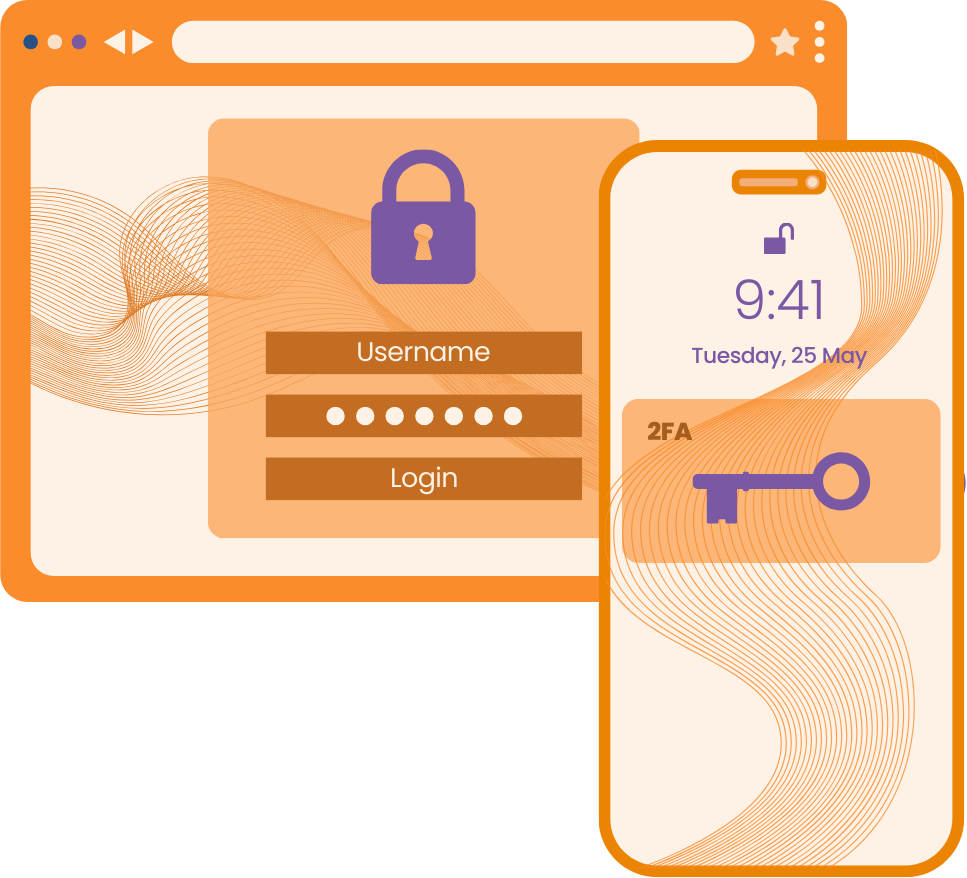Two-Factor Authentication in PPS
As part of our commitment to providing the highest quality service to all of our clients, we have recently introduced brand new security measures in PPS and PPS Express that allow you to take your data protection to the next level!
In the latest PPS Express update (v2.0021) and the latest PPS Beta update (v4.1.1705) we made some changes to the minimum password requirements and introduced the ability to enable Two-Factor Authentication.
What is 2FA?
Two-factor authentication or ‘2FA’ might seem like one of those technical terms reserved for the IT guys, but it’s a really simple, but very effective tool that you can utilise to add an extra layer of security to your online services.
When you enable two-factor authentication, each time you access your services you will utilise two forms of verification, typically comprising of something you know (like a password) and something you have (like a mobile device). You may already be familiar with 2FA as it is widely available across popular applications like Gmail and most social media channels.

Enabling 2FA significantly reduces the risk of unauthorised access to your online services, even if your login credentials are compromised.
Enhancing the security of your patient data
Whether you have already embraced the world of digital healthcare or are still on the fence, the security of your patient data should always be at the forefront of your mind.
Utilising practice management software gives you the advantage of being able to turn on additional security measures at the touch of a button.
Turning on 2FA helps you to protect your patient data by making it even harder for unauthorised users to gain access and mitigating the risk of online data breaches. Adhering to complex password requirements helps you avoid using duplicate credentials across services, which we know is all too often the case! And beyond that, adding a device to your login process makes it almost impossible for criminals to access your data.
Read more on the UK Government’s Cyber Security initiative here:
Stay on the right side of GDPR
Following the introduction of GDPR in 2016, there has been a huge emphasis on the need for appropriate technical and organisational measures to ensure the security of personal data, something which every private healthcare provider will possess in abundance!
In accordance with Article 32 of the GDPR, controllers and processors of personal data must implement appropriate technical and organisational measures to ensure a level of security appropriate to the risk, including the ability to ensure the ongoing confidentiality, integrity, availability and resilience of processing systems and services.
2FA is widely recognised as an enhanced security measure and so can be considered a part of the required security measures outlined in GDPR, keeping your patient’s data extra safe and ensuring you remain compliant with the legal guidelines.
Peace of mind
It’s a given that when you take on a new client they must share some personal information with you, at the very least this will include their name, date of birth, contact details and medical history. In order for you to provide treatment you will also need to record the details of your sessions, you may need to maintain a record of consent, store GP details, the list goes on! Naturally, as your interactions continue, the level and depth of data held will grow.
With the evolution of technology, we have also seen the way in which you can collect data transform, with online forms, online profiles, links to external applications and personal communication (e.g. SMS reminders) all part of everyday practice life!
As a healthcare provider, your clients are relying on you to protect this data and you rely on this automatic level of trust that comes with your profession to attract and retain clients.
Not only does enabling 2FA serve as peace of mind for you and your team when managing all of this data, it also shows your commitment and professionalism to your existing and potential customers. Demonstrating a clear understanding of legal guidelines and adequate technical security, which, in turn, will also boost your clients’ confidence in engaging with you via your online services, aiding the streamlining of operations that practice management software does so very well.
If you haven’t already enabled two-factor authentication in PPS, check out our guide for how to turn it on:
Currently 2FA is only available in PPS to Beta users
In a nutshell
Implementing two-factor authentication in your practice management software is a smart and straightforward way to enhance your clinic’s security. It’s a simple step that can make a big difference in protecting patient data and building trust with your clients. Stay ahead of potential threats and ensure your clinic remains a safe and reliable place for everyone with 2FA.

